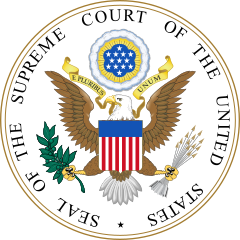Recently I had a week where I told my coworkers, “I’m having a really hard week, I’m doing the bare minimum. Let me know if you need something from me and I’ll try to prioritize it.” I showed up to critical meetings, rescheduled non-critical ones, and made sure all of my 1-1s with my reports had enough buffer that I could focus on them. I did what was absolutely necessary, and postponed anything ambitious or innovative.
I wouldn’t have told my coworkers any of that 10 years ago. I’d have taken days off (“not feeling well”) or pushed myself to do work that would’ve come out badly. I would’ve agonized over it.
But this year, everyone I work with is struggling. People who usually have the best mental health are grappling with anxiety and depression. People with kids are being run ragged trying to watch them and do work. People who live alone are lonely. And those of us who already have mental health challenges still have mental health challenges. If we had coping mechanisms before, we’re leaning on them extra hard. And we’re sharing those tips with our neurotypical friends.
I’ve told people I have a therapist. I’ve told people the things I do to manage my anxiety. “Our brains lie, don’t believe them.” “Look for evidence that the anxiety is wrong, not only for evidence that it’s right.” I’ve told people the things I do to manage my depression. “Treat it like a cold: drink tea, wrap yourself in a warm blanket, and get plenty of rest. It will pass.” (My depression always passes. I know not everyone’s does.)
I’ve made myself a resource for people to talk about how they’re struggling, without judgment or the need to change it. Emotions are more like the weather than like truth. They don’t need to be fixed, any more than the rain needs to be fixed. They need to be experienced, and responded to appropriately. Don’t leave the house without a rain jacket, don’t act like your anxiety isn’t there. But you wouldn’t take the rain as an indication that something is wrong, so don’t take your anxiety as an indication that something is wrong. Maybe it’s just anxiety.
But also, anxiety brings wisdom. Are there things I should be doing differently? Great, let’s write down what they are and do something about them. But I can’t just do them differently while the anxiety has me in its grip — the anxious parts of me don’t have those skills. Writing them down is like putting on the rain coat.
I’ve appreciated feeling more normal this year, as more people have had brain demons like mine. I’m not weird, this year. This year, I’m more prepared than most, because I already have coping techniques.
I’m also really struggling. This year has been relentless, and I’m daydreaming of a month in a cottage by the ocean or a lake, where I have no responsibilities and can just float from one restful thing to another. Reading. Eating good food. Staring at the water. Going for a hike. Having a quiet chat with whoever I’m with. Not having to remember which coping mechanisms worked well last time.
I’m ready for a new year.



